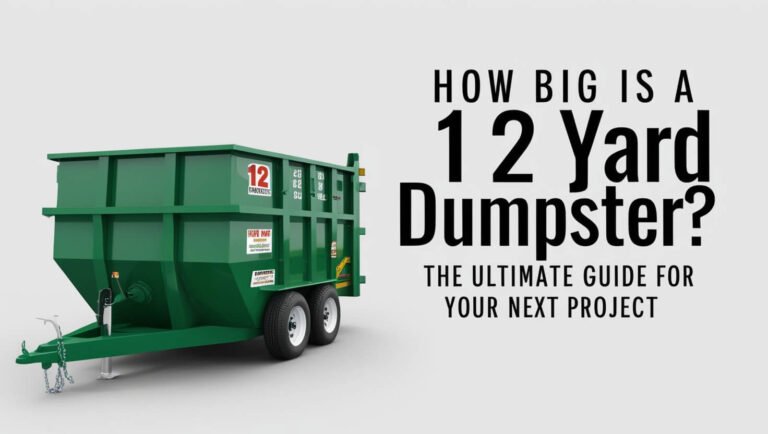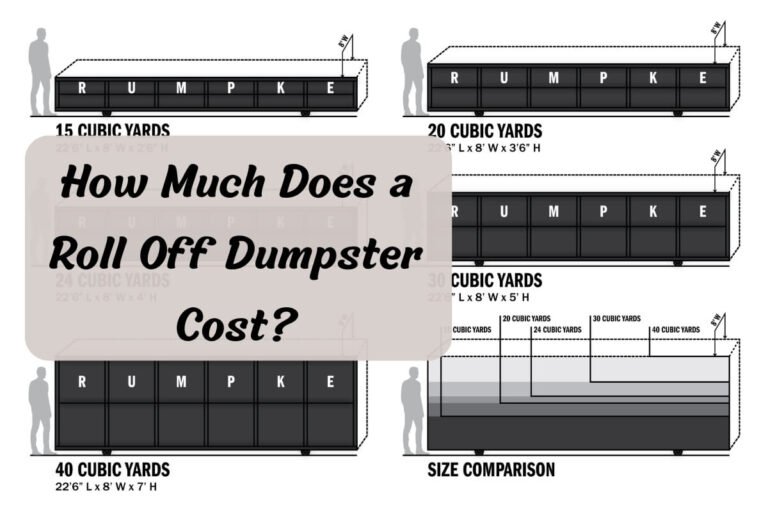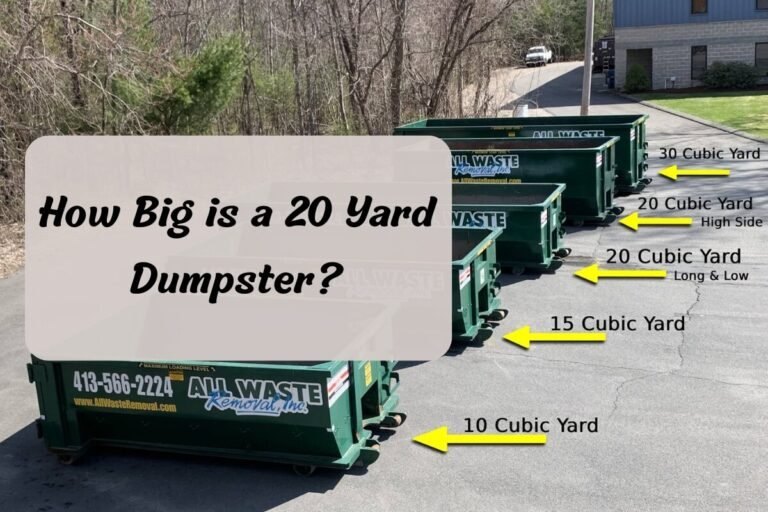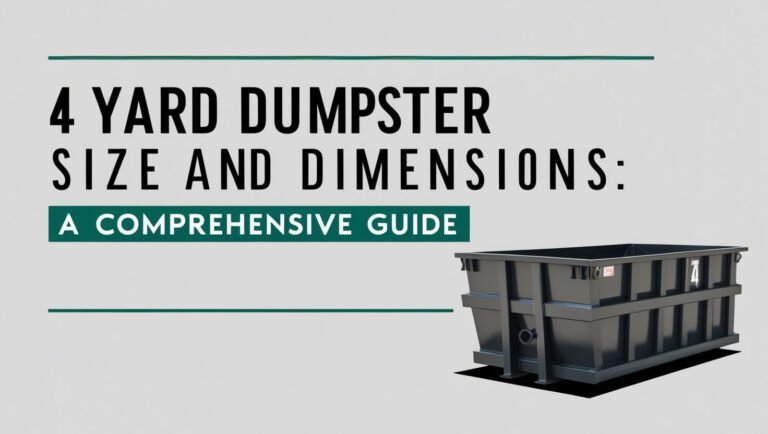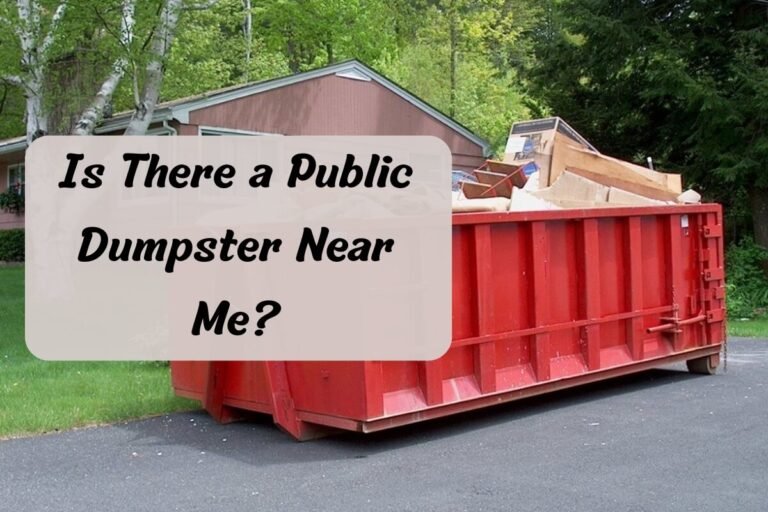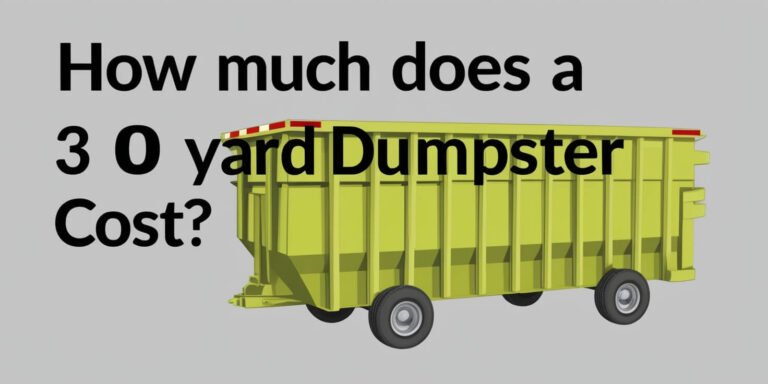Is It Illegal to Use a Dumpster That Doesn’t Belong to You?
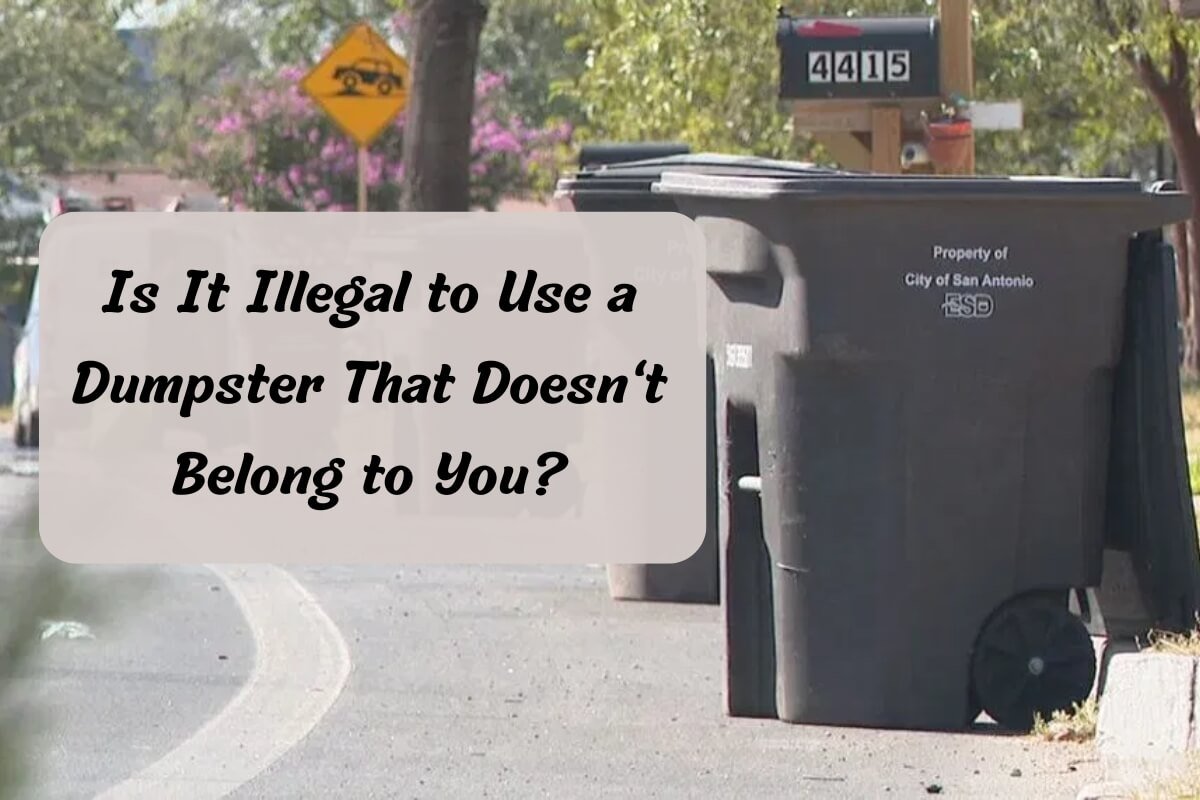
Throwing away trash seems like a simple task, but did you know using the wrong dumpster could land you in legal trouble? That’s right – casually tossing your garbage into a dumpster you don’t have permission to use is often considered illegal dumping.
In this detailed guide, we’ll cover the legalities surrounding dumpster use, the consequences you could face, and better alternatives for proper waste disposal. Whether you’re a homeowner, renter, or business, it’s crucial to understand the rules to avoid costly penalties or even criminal charges.
The short answer is yes, it is generally illegal to use a dumpster that doesn’t belong to you without the owner’s consent. But there’s more to this issue than a simple yes or no, so let’s explore the details.
What Exactly is Illegal Dumping?
Illegal dumping refers to improperly disposing of waste on public or private property without the owner’s permission. This includes using someone else’s dumpster to throw away your trash, furniture, construction debris, and other unwanted items.
Most municipalities treat illegal dumping as a crime, typically categorized as a misdemeanor offense. While the specific laws and penalties vary, the consequences can be quite severe, including hefty fines and potential jail time in some cases.
Dumpster Use Laws Across the U.S.
Since waste management regulations are primarily determined at the local level, there’s no universal federal law governing dumpster use. However, most cities and counties have ordinances prohibiting the unauthorized use of private dumpsters and containers.
Let’s look at some examples from different states:
Texas: In Texas, illegal dumping is defined as “putting trash, garbage, waste, anything discarded where it doesn’t belong, whether or not the person dumping owns the property.” Putting trash in a dumpster that isn’t yours is explicitly stated as illegal.
The penalties for illegal dumping in Texas range from:
- Class C Misdemeanor (fine up to $500) for dumping 5 lbs or less
- Class B Misdemeanor (fine up to $2,000 and/or up to 180 days in jail) for dumping between 5-500 lbs
Washington State: Both Seattle and Spokane have municipal codes prohibiting the unauthorized use of dumpsters on private property. For instance, Seattle’s code states: “It is unlawful for anyone not authorized by the property owner or occupant to deposit any material in any solid waste container on private property.”
New York State: Similarly, New York state considers dumping trash into someone else’s private dumpster or trash can as illegal and a misdemeanor offense. Depending on the circumstances, you could face costly fines or even jail time if caught.
While these are just a few examples, the underlying principle is consistent across most U.S. states and cities – using a dumpster without the owner’s explicit permission is generally against the law.
When Could Using Someone Else’s Dumpster Be Allowed?
There are a few exceptions where you may be permitted to use a dumpster that isn’t directly yours:
- The owner grants you permission: If the dumpster belongs to a business, apartment complex, or private residence, and the owner explicitly allows you to use it, then it’s likely not considered illegal dumping.
- Public use dumpsters: Some dumpsters are explicitly designated for public use, such as those in park areas or apartment complexes’ shared dumpsters for tenants.
Assume a dumpster is off-limits unless you have permission to use it.
Consequences of Illegally Using a Dumpster
Aside from the legal repercussions like fines and potential criminal charges, there are other consequences to be aware of when it comes to unauthorized dumpster use:
Additional Costs for the Rented Dumpster: When you dump your trash in someone else’s rented dumpster, it can lead to extra fees for the renter. Overfilling the dumpster beyond the weight limit could result in overweight charges, or the renter may need to pay for an additional dumpster rental to accommodate the extra waste.
Environmental Hazards from Improper Disposal: There’s also a risk of improperly disposing of hazardous materials like chemicals, paint, or electronic waste (e-waste) when using an unauthorized dumpster. This can lead to environmental contamination and potential legal issues for the dumpster’s renter if discovered.
Frustration and Nuisance for Property Owners: From a property owner’s perspective, dealing with illegal dumping in their private dumpsters is an unnecessary frustration and hassle. It forces them to monitor the dumpster closely and potentially invest in deterrents like enclosures, locks, or surveillance systems.
How Businesses Deter Illegal Dumping
To combat the persistent issue of illegal dumping, many businesses and property managers implement various preventative measures for their dumpsters:
- Enclosures or fencing: Placing the dumpster within a secured, fenced-in area restricts access and deters would-be dumpers.
- Locks or chains: Some dumpsters have locking mechanisms or chains to physically prevent unauthorized opening and use.
- Lighting: Well-lit areas make it easier to identify potential illegal dumpers and also serve as a deterrent.
- Surveillance signage: Posting signs warning of video monitoring can discourage people from attempting to use the dumpster illegally.
- Short-term rental periods: Instead of long-term dumpster rentals, opting for shorter periods when the dumpster is actively needed reduces the window for illegal dumping to occur.
These methods add an extra layer of security and show the property owner is actively monitoring the dumpster to deter unlawful use.
Is Dumpster Diving Legal?
Illegal dumping is different from “dumpster diving”, which is searching dumpsters for recyclables or valuable items.
The legality of dumpster diving is a bit murky, as laws can vary significantly between cities and states. In some areas, dumpster diving is perfectly legal as long as you’re not trespassing on private property or creating a public nuisance.
However, in other jurisdictions, dumpster diving may be considered a form of theft or illegal scavenging, particularly if the dumpsters belong to private businesses or residences. It’s always wise to research your local ordinances and property laws before engaging in any dumpster diving activities.
Better Alternatives to Using Someone’s Dumpster
Instead of resorting to using a dumpster you don’t have rights to, there are lawful and ethical alternatives for properly disposing of your waste:
Rent a Temporary Dumpster: Dumpster rental services allow you to temporarily rent a dumpster for residential or commercial projects. This ensures you have a designated place for your waste without violating any laws.
Use Municipal Waste Services: Most cities offer regular trash and recycling collection services included in utility bills or taxes. Taking advantage of these services is the proper way to dispose of household waste.
Donate or Recycle Items: Before throwing away gently used items, furniture, or construction materials, explore options to donate them to charities or take them to a recycling facility.
By exploring legitimate disposal methods, you can avoid the hassles and potential legal consequences that come with using an unauthorized dumpster.
The Bottom Line on Dumpster Use Laws
While it may seem like a harmless act, using a dumpster without the owner’s consent is generally considered illegal dumping in most parts of the United States. Regardless of how little trash you have or whether the dumpster appears vacant, taking that risk could result in misdemeanor charges, costly fines, and even jail time in some cases.
The laws around dumpster use aim to protect property owners and ensure proper waste disposal to avoid environmental hazards or public nuisances. By renting your own dumpster, utilizing municipal services, or exploring recycling options, you can safely and legally get rid of your unwanted items.
When in doubt about using a dumpster, it’s best to be cautious and find an authorized alternative.
So the next time you have trash to dispose of, think twice before tossing it into an unfamiliar dumpster – your wallet (and criminal record) will thank you!

